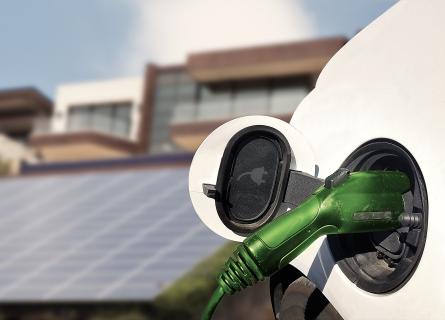
Mobility habits in times of COVID-19: what to pay attention to now
It is ironic to work on the future of mobility during a time when mobility is severely restricted.
We used to discuss sustainability, lowering CO2 emissions, air pollution and congestion. The COVID-19 pandemic has shifted the debate to the value of mobility. Many of us who are in lock-down, working in home-offices and in quarantine cannot wait for things to go back to ‘normal’. Or can we?
A sense of urgency causes behavioural changes that had been talked about for decades to seemingly happen overnight. In this short article, we examine what different mobility stakeholders, from public transport providers to EV manufacturers, should be paying attention to. It should be noted that historical precedents are of limited use, making it difficult to derive any predictions. Instead, the aim is to explore how they can seize the opportunities, caused by this crisis, to further their goals.
Mobility habits
Travel choices, and especially our daily commute, are determined by habit. We stick to known routes, without considering alternatives. Research has shown that opportunities to break these habits arise during big life changes, such as switching jobs or changes within family life. In the long term, it is interesting to see if the COVID-19 pandemic will have a similar impact on changing mobility habits.
Already, new enablers emerge that encourage sustainable mobility habits. We realise that work trips to Manchester, training courses in London, and even conferences in Madrid could just as well have been done in a virtual manner. We start to see the benefits of working from home, and appreciate the time spent outside more. Will this involuntary trial period be long enough for new habits to form, will we want to return into our cars for our daily dose of traffic jams? Will employers expect employees to return to the traditional office set-up, or will working from home become more spread?
Of course, these are not universal phenomena. For some people, working from home, or not working at all, has caused immense hardship. Mobility, to them, is invaluable.
1. Public transport providers
For public transport, the crisis is a threat, but could also offer opportunities.
First, from across the world we see reports of train stations and subway platforms that are now empty, a clear reminder of the decreased use of public transport. To give an example, during the first weeks of the COVID-19 outbreak use of public transport in the Swedish region Västra Götaland dropped by around 40%. This was partly caused by people staying at home but also restrictions due to distancing measures. More recently, from regions with partially lifted restrictions, we learn about low usage of public transport. Therefore, it is likely that targeted efforts are required to encourage these travellers to return to public transport, once restrictions are fully removed.
However, public transport providers could view this situation as an opportunity to support travellers to break mobility habits and switch to more sustainable alternatives, for example by introducing temporary discounts or targeted campaigns when people can move more freely again. It is interesting to note that women tend to be more receptive to using public transport than men, and that women’s travel behaviours are more sustainable in general, a Swedish study finds.
Public transport providers should act now, since time for reinforcing changes is limited, as people will easily fall into old behaviours unless they are offered attractive alternatives.
2. Vehicle manufacturers
Certainly, car manufactures face tremendous hardship during these times given that production has stopped, global supply chains have been impacted and people’s car buying habits stand under scrutiny.
However, it appears that this crisis has also highlighted the value of private car ownership. Restrictions and recommendations to avoid crowds impact the number of people on public transport have temporarily given new legitimacy to cars, as we appreciate the social distance on the road.
Car manufacturers may have an opportunity to reach out to consumers and revisit touchpoints they have with them. While it is common for customers to research prices, models and configurations online, many still trust, ask and interact with a car dealer before purchase. Vehicle manufactures therefore should intensify communication with consumers by using cleverly designed digital interfaces, highlighting the value of having unrestricted access to a vehicle at all times.
3. Car sharing businesses
Although slowly on the rise, car sharing is still not very common. According to a study of the University of Twente, only 3% of respondents use the car sharing service Zipcar, daily. It is difficult to overcome the status quo of having access to our own vehicle, as the trust in availability of the shared car has not been established yet.
However, car sharing businesses were among the quickest to adapt to the consequences and impacts of the crisis, for example by offering free services to doctors and nurses. Positive storytelling and reinforcing the reliability of these services in consumers’ minds – e.g. medical personnel reach their workplace, delivering food to elderly people – helps to establish social proof of the concept of car sharing. Hence, car sharers could receive new visibility beyond offering a mere mobility service, meaning that their added value is to provide social cohesion among people. Thus, car sharing businesses should, post-crisis, intensify their marketing efforts towards selected customer groups that have experienced the reliability of the service, helping to reduce any prejudices.
4. EV charging businesses
Before the crisis, electromobility was the predominant topic in the future mobility space. Electric vehicle charging business models were being established and strategies formed to fit infrastructure to future consumer needs and existing constraints such as traffic flows and electricity networks.
For businesses dependant on strong EV growth, the short-term effects of COVID-19 are clearly negative. As purchases are postponed, fewer consumers even have the opportunity to choose an EV over a gasoline or diesel vehicle. In the U.S., observed effects are more severe than those in 2009: in March 2020, car sales were 38.6% lower than in March 2019. Going forward, more and more consumers will find it more difficult to raise the cash needed for a more expensive EV compared to a cheaper alternative. The lower price of gasoline and diesel further undermines the case for an EV.
There is a danger that governments, during and after the crisis, will ramp back the efforts on measures to accelerate the growth of electric mobility. Authorities in several UK cities have postponed introducing clean air zones, stating the need for essential workers to get to their workplace as a justification.
A major difference between a crisis and ‘business-as-usual' is that in a crisis forceful measures will be accepted more easily because of the downsides of the alternative. The feeling of urgency (e.g. air quality) needs to be maintained, and change becomes more likely. Reinforcing positive messages is key. Cities have reported significant drops in pollutants already. Early indications show that the concentration of nitrogen dioxide in London is down 50%.
Final thoughts
The crisis shows that quick changes in mobility habits and behaviour are possible. Companies now need to focus on capturing the current behaviour change – meeting virtually, commuting less, using different modes of transportation – and reap benefits through the development of new campaigns, channels, products, services and business models.
There are other potential behavioural changes that are worth monitoring, as they are indirectly related to mobility, such as where people choose to work and where to live. An AFRY study among young people in Northern and Central Europe revealed a trend towards more sustainable and rural living – 88% of respondents want to live in cities with <1mn inhabitants.
The COVID-19 crisis is a black swan event – beyond our expectations in both scale and type of impact. It is very difficult for people to formulate appropriate responses in many aspects of their lives. Those who communicate best in and after the crisis have an opportunity to turn positive developments into lasting benefits. If we give in to our urge to “go back to normal, now more than ever”, we will have squandered a huge opportunity.
Find out more
Presented in partnership with Bryan Cave Leighton Paisner, our next webinar will explore what lasting impact the pandemic and subsequent crisis could have on the e-mobility sector.
Thursday 14 May 2020
14:00 BST / 15:00 CEST
Register now



